National capacity for coronavirus testing has topped 35,000 a day, but “lack of demand” meant fewer than 16,000 were actually being conducted daily, Downing Street has said.
The announcement comes a day after health secretary Matt Hancock denied missing a target of reaching 25,000 capacity by mid-April set by his own department on 18 March, and marks the first time that the figure has been met. But it still leaves Mr Hancock well short of the 100,000-a-day target he has set for the end of the month.
And a body representing biomedical scientists insisted that the barrier to testing was not lab capacity but a lack of testing kits and chemicals.
Download the new Independent Premium app
Sharing the full story, not just the headlines
Institute of Biomedical Science (IBMS) president Allan Wilson said: “The 17,000 NHS laboratory workers that I represent are increasingly expressing their frustration,” he said.
“They have applied themselves innovatively to increase Covid-19 testing capacity and have the platforms ready so that the NHS laboratories are able to meet the Secretary of State’s ambitious target, but they are still not able to source the testing kits and reagents they require.”
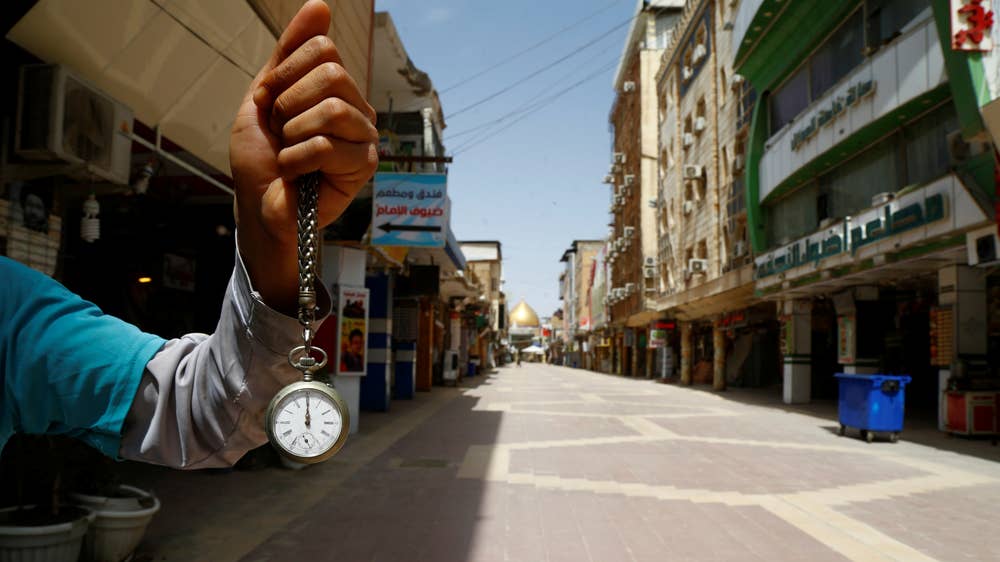
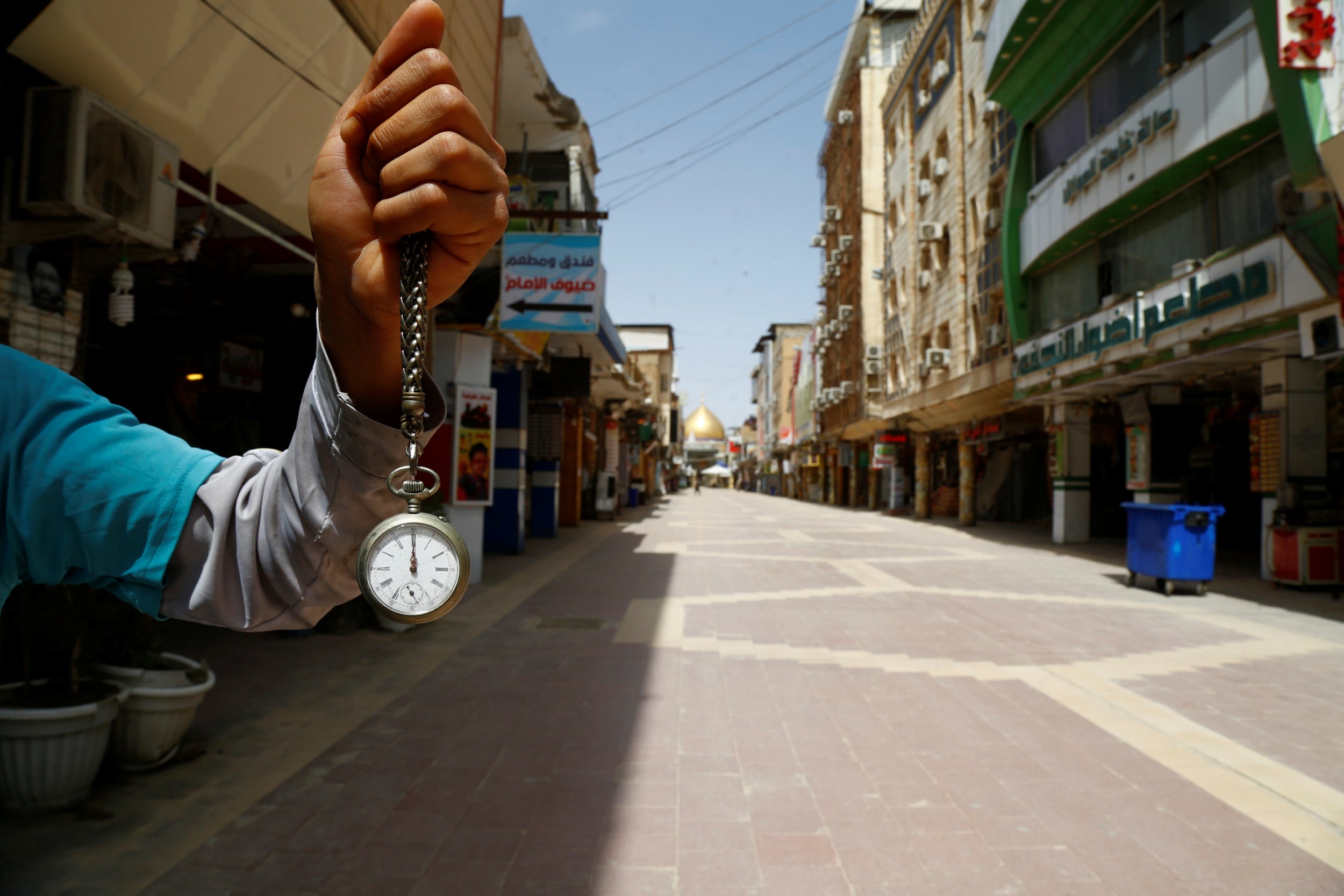
1/18 Najaf, Iraq
A man holds a pocket watch at noon, at an almost empty market near the Imam Ali shrine
Reuters

2/18 Bangkok, Thailand
Wat Phra Si Rattana Satsadaram (The Temple of the Emerald Buddha, also known as The Grand Palace)
Reuters

3/18 Prague, Czech Republic
Empty streets at Old Town Square
Reuters
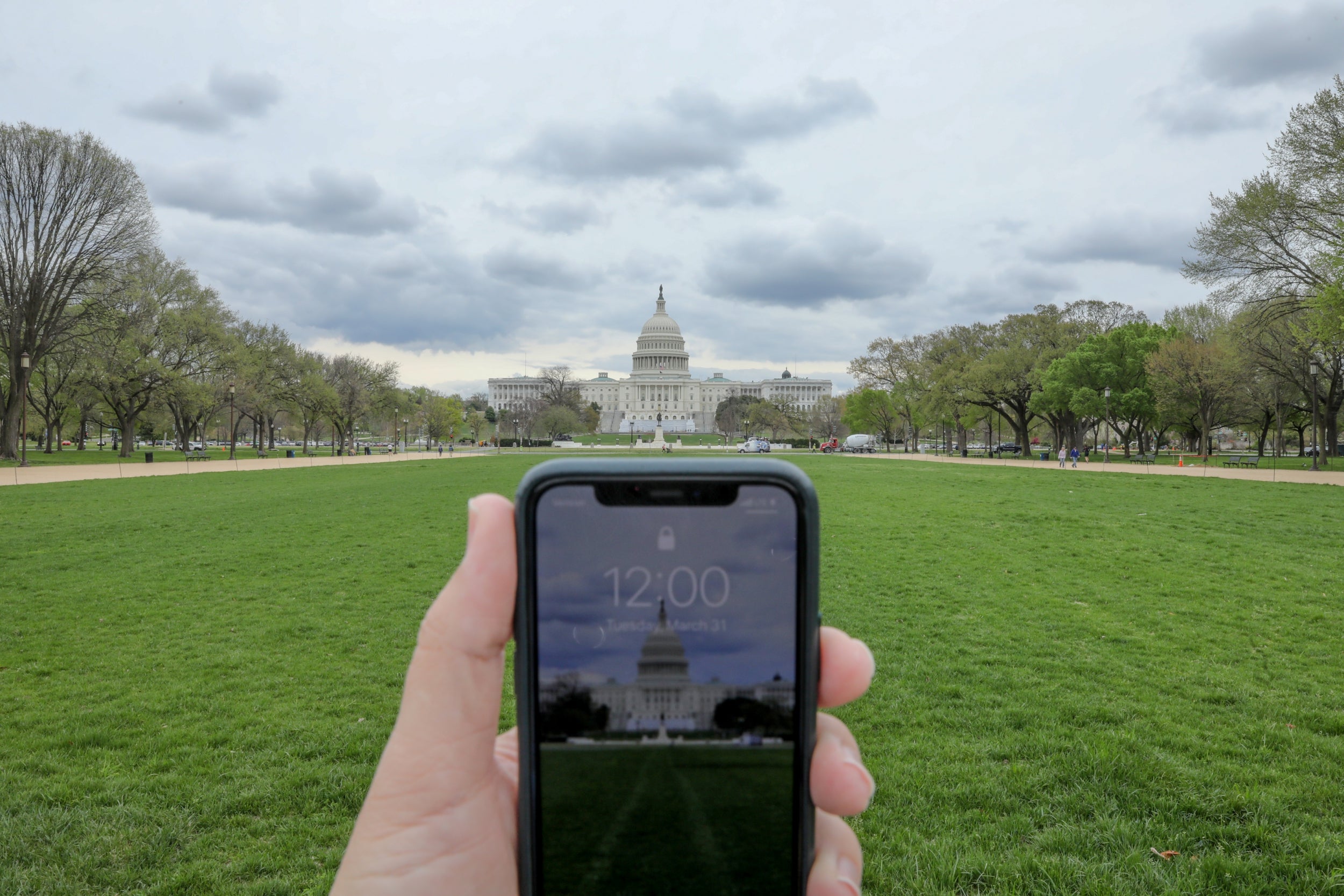
4/18 Washington, US
United States Capitol
Reuters

5/18 Jerusalem’s Old City
A watch showing the time at noon, in front of Damascus Gate
Reuters
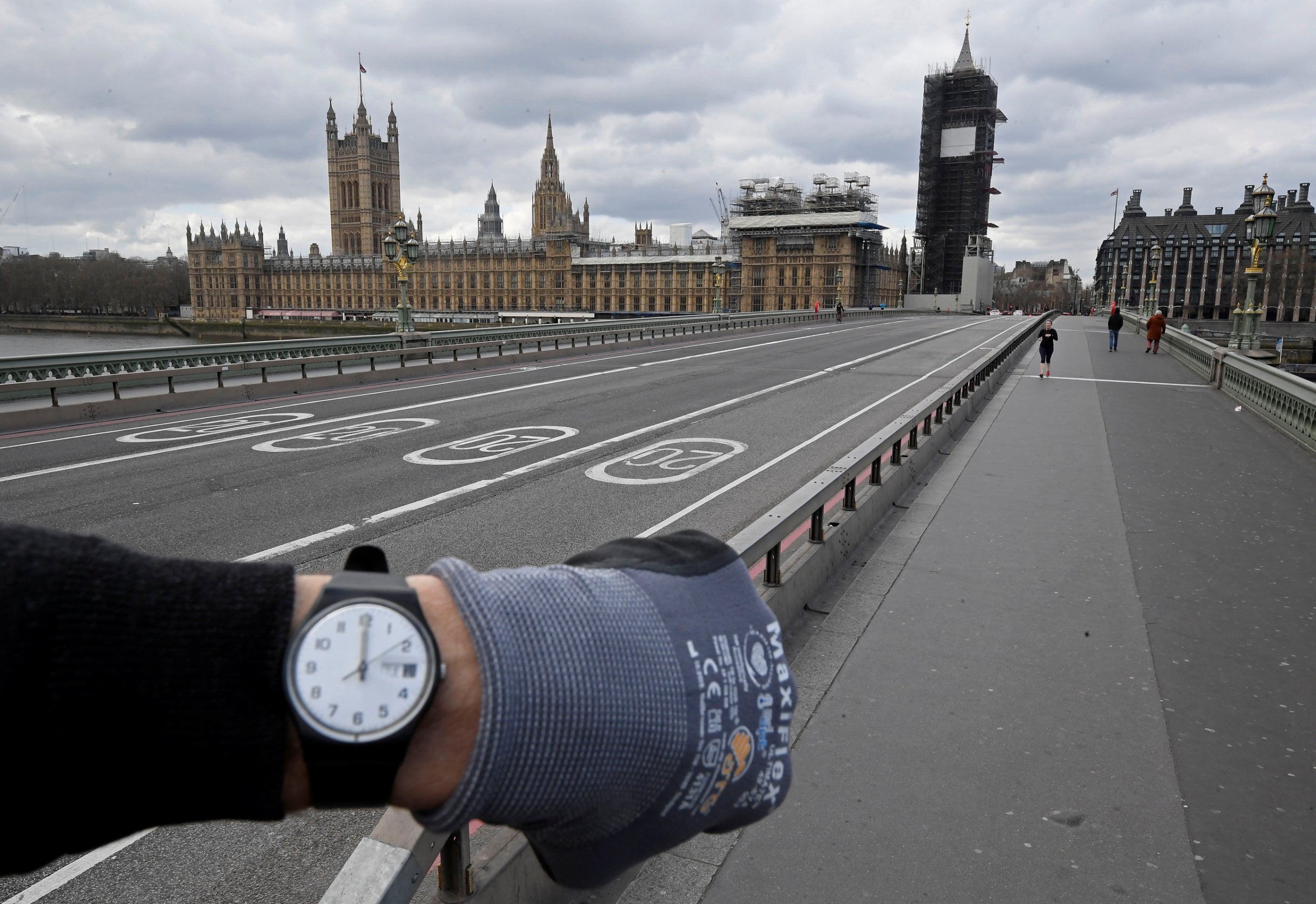
6/18 London, UK
A woman jogs past the Houses of Parliament on Westminster Bridge
Reuters
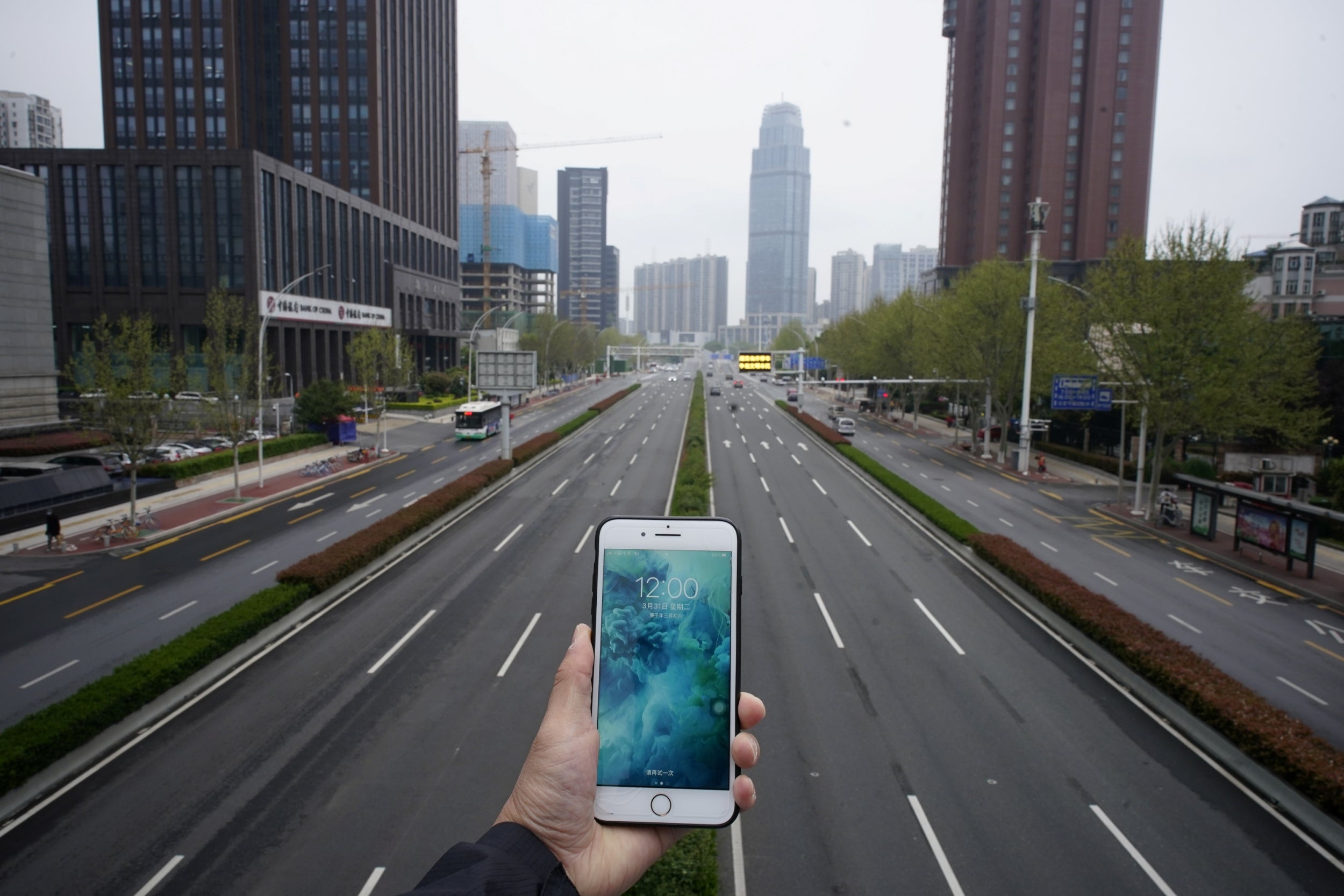
7/18 Wuhan, China
Empty road with low traffic
Reuters
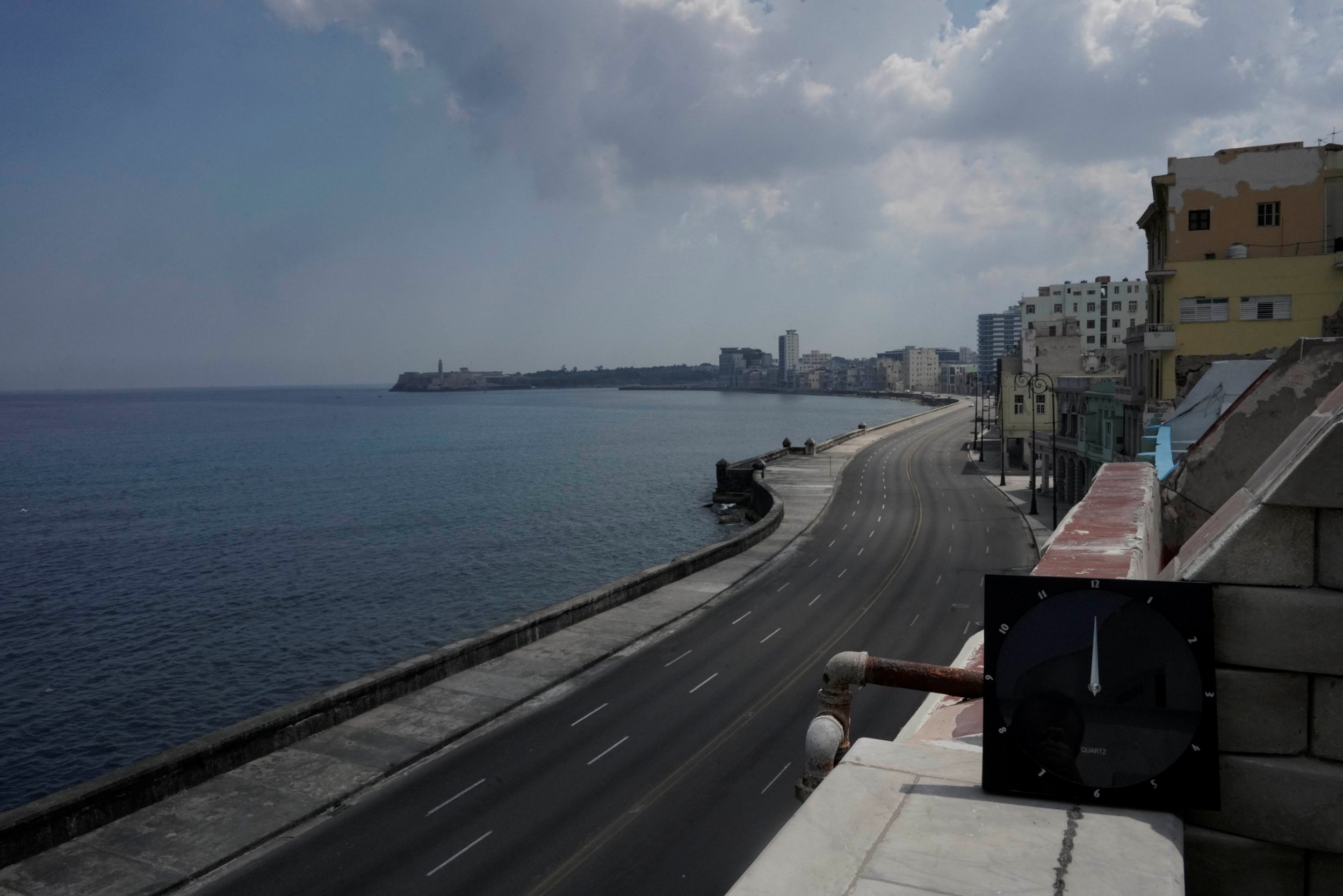
8/18 Havana, Cuba
The seafront Malecon next to an almost empty road
Reuters
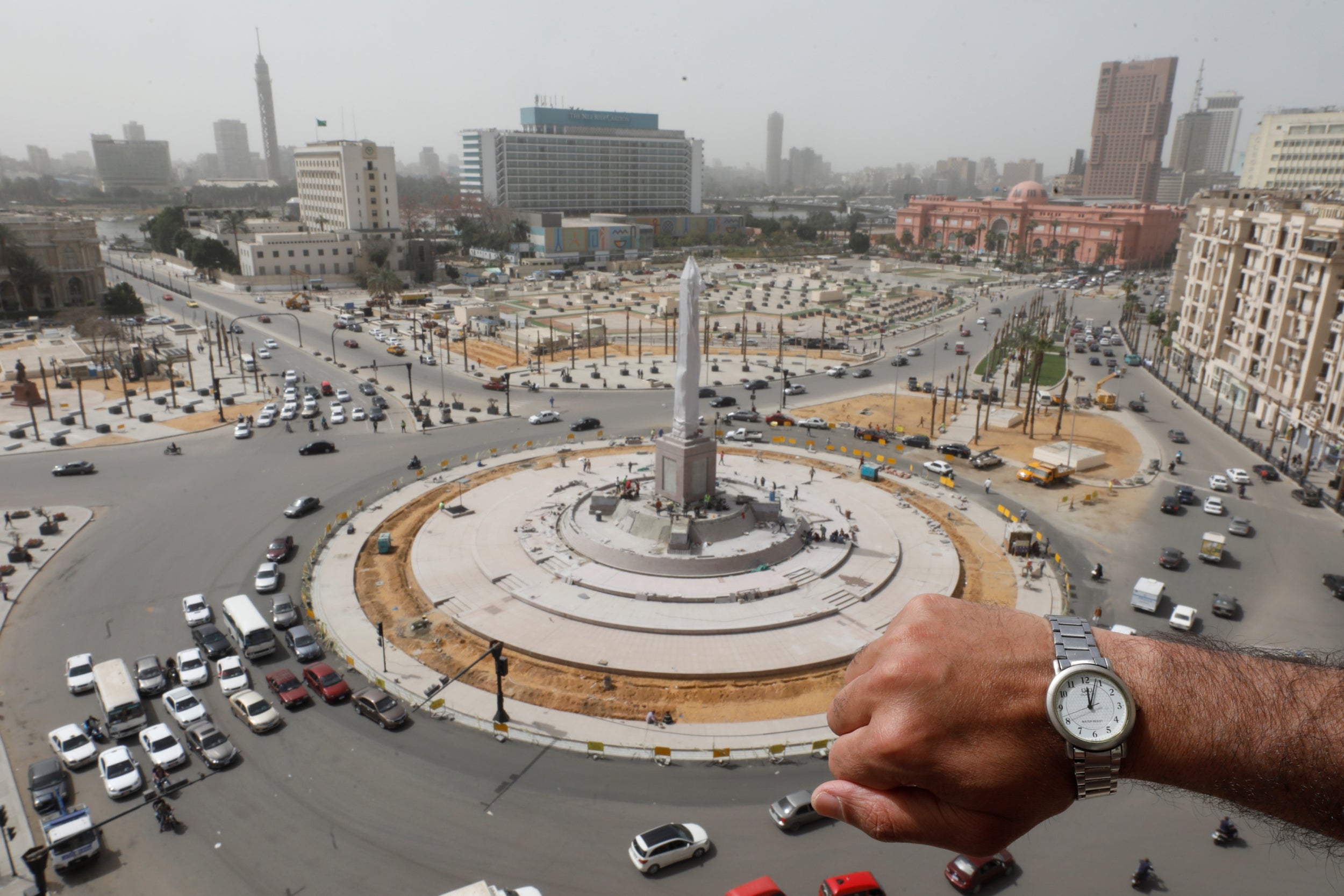
9/18 Cairo, Egypt
Tahrir Square
Reuters
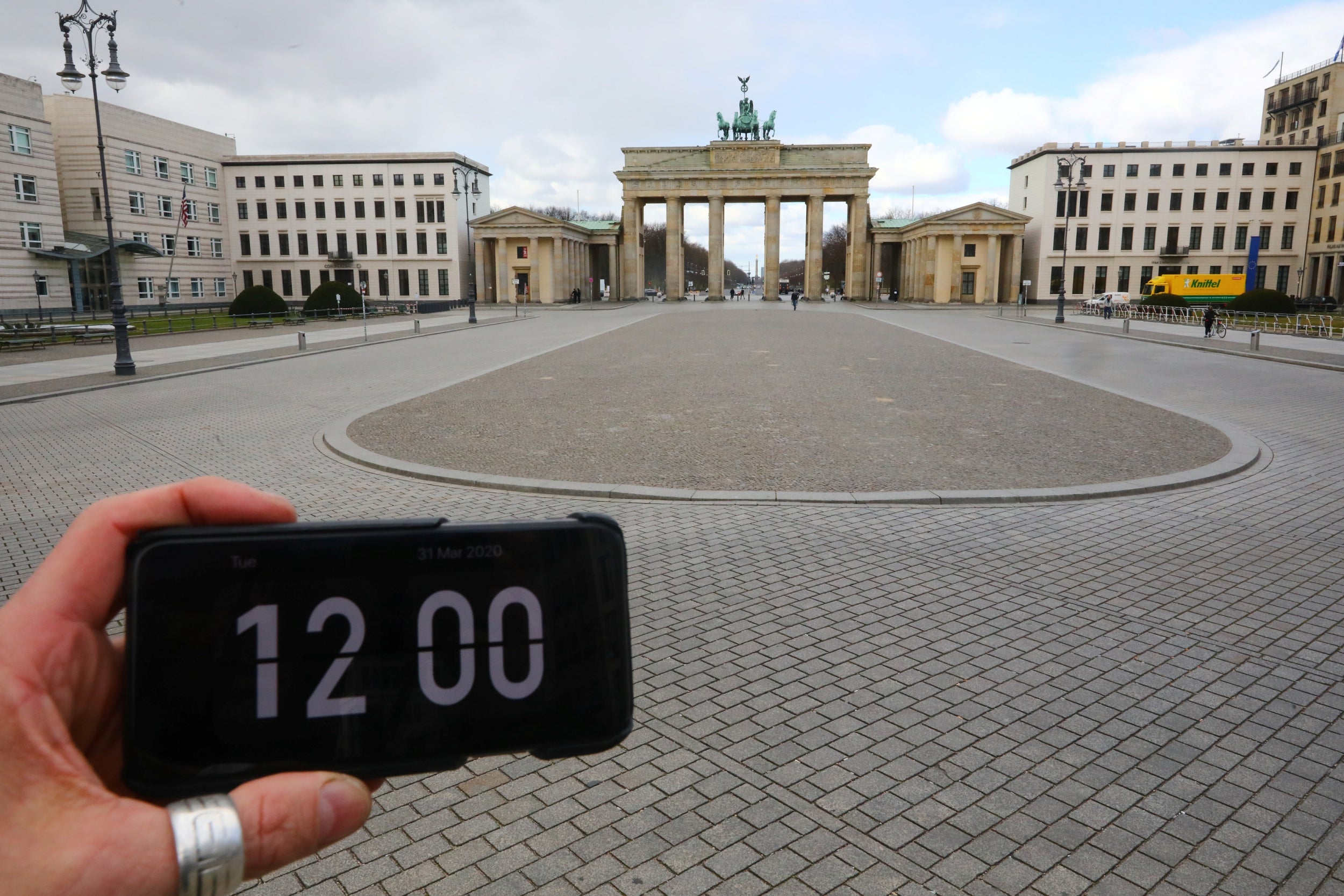
10/18 Berlin, Germany
Brandenburg gate
Reuters
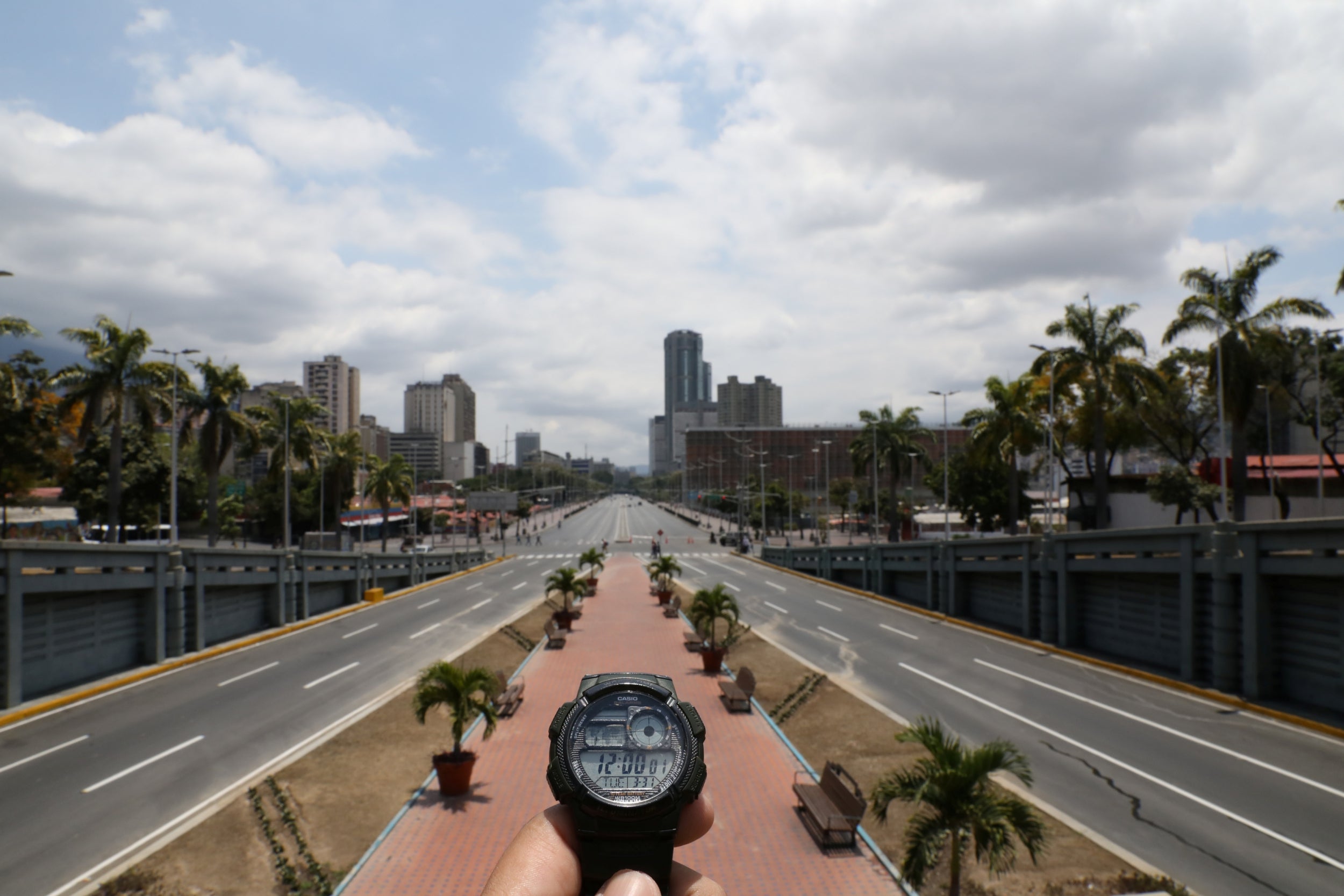
11/18 Caracas, Venezuela
Bolivar avenue
Reuters
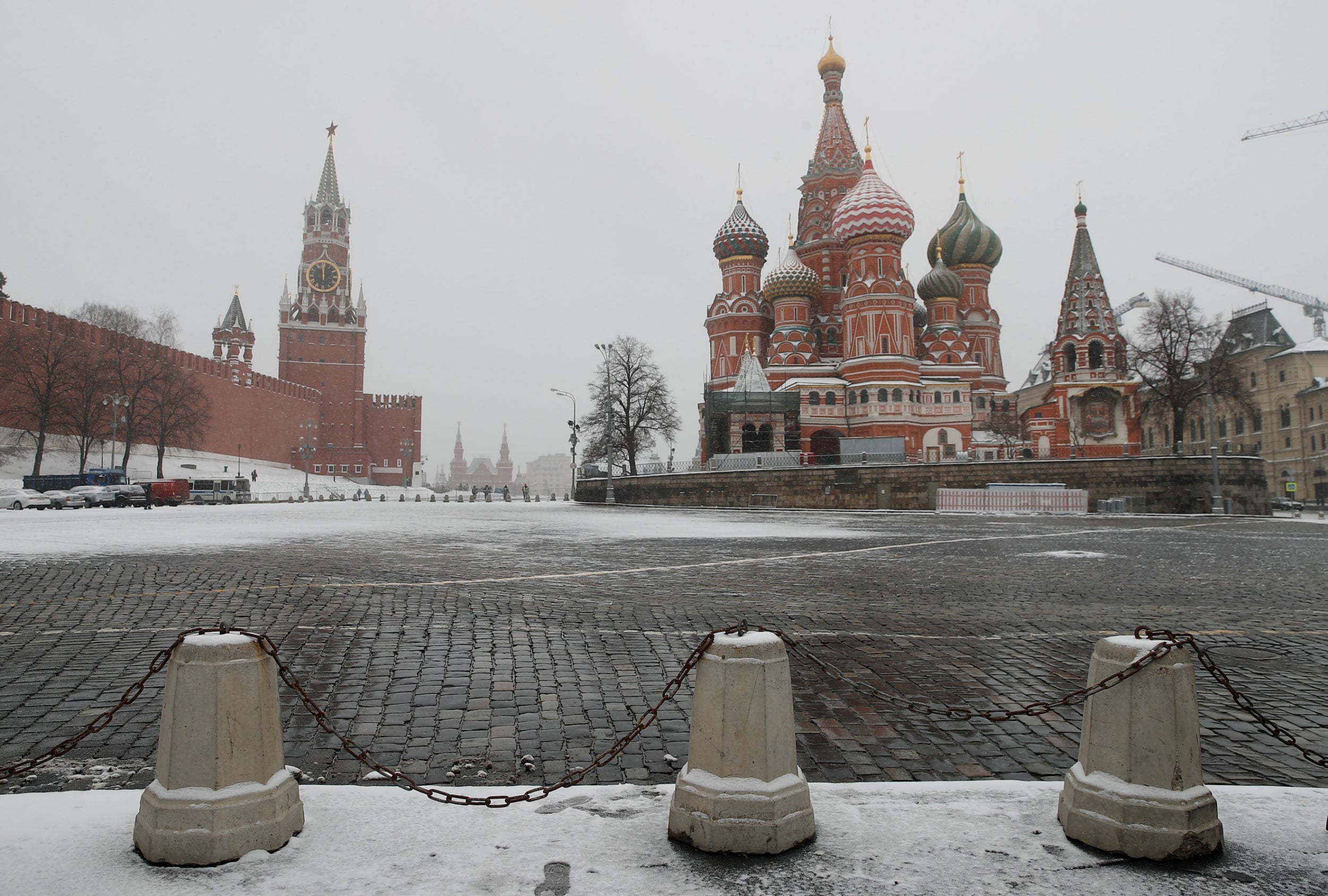
12/18 Moscow, Russia
The clock on Spasskaya tower showing the time at noon, next to Moscow’s Kremlin, and St Basil’s Cathedral on an empty square
Reuters
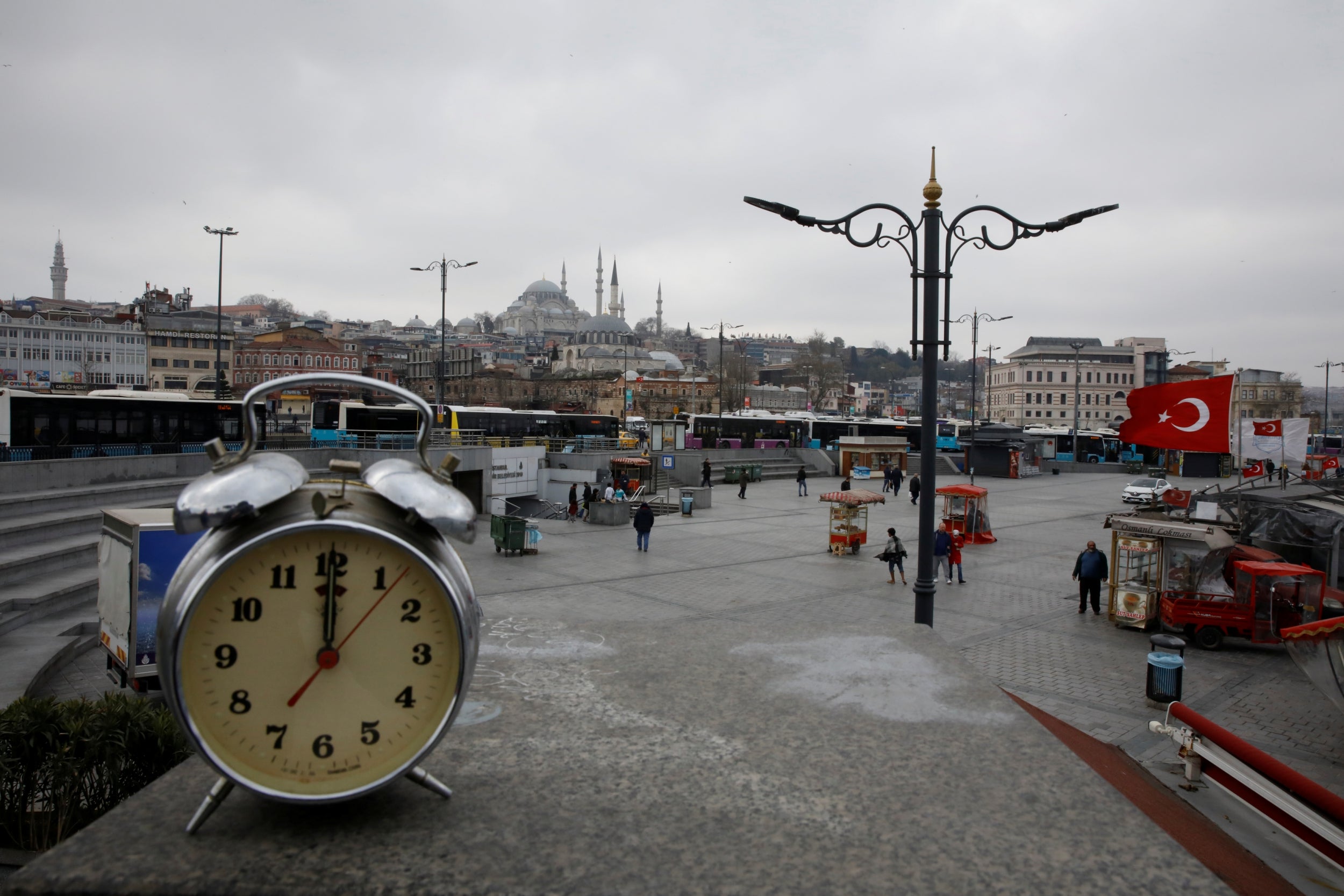
13/18 Istanbul,Turkey
Emionu district
Reuters
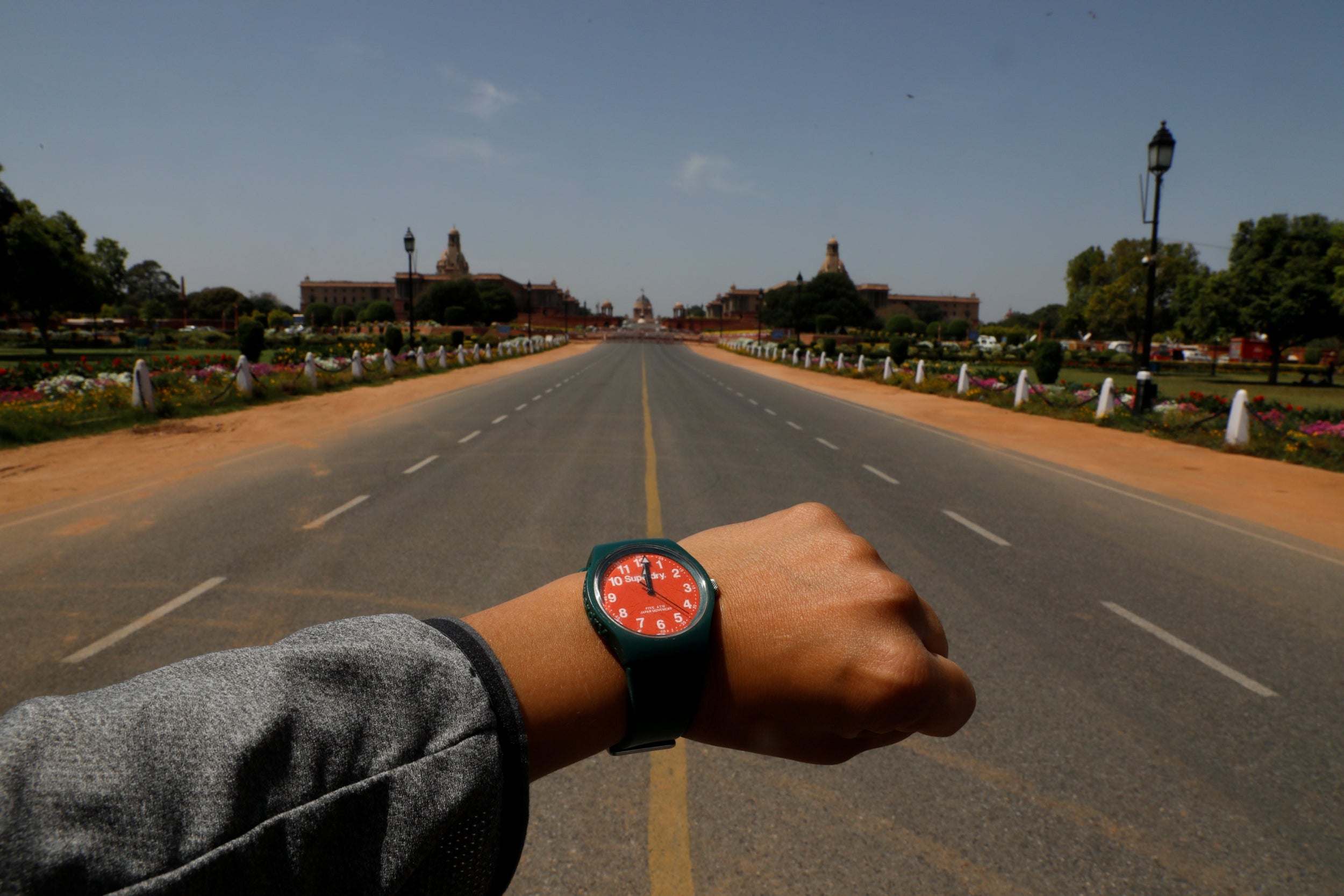
14/18 New Delhi, India
An empty road at Rajpath
Reuters

15/18 Amman, Jordan
The Roman amphitheater
Reuters

16/18 New York City, US
The clock strikes noon at the main concourse of the Grand Central Terminal in Manhattan
Reuters

17/18 Kiev, Ukraine
Almost empty streets at Maidan Nezalezhnosti (Independence Square)
Reuters
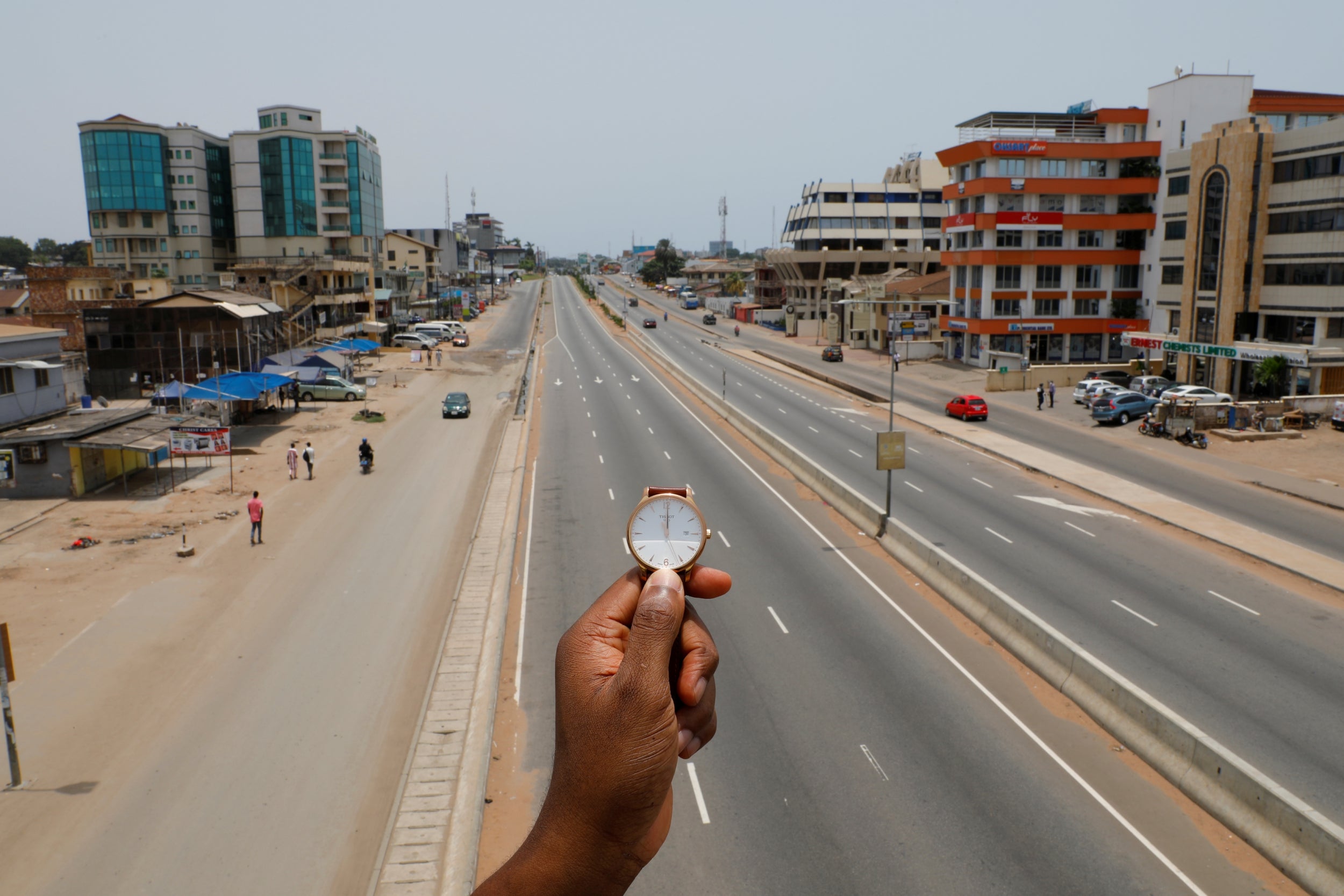
18/18 Accra, Ghana
People walk past Ring Road Central Street
Reuters

1/18 Najaf, Iraq
A man holds a pocket watch at noon, at an almost empty market near the Imam Ali shrine
Reuters

2/18 Bangkok, Thailand
Wat Phra Si Rattana Satsadaram (The Temple of the Emerald Buddha, also known as The Grand Palace)
Reuters

3/18 Prague, Czech Republic
Empty streets at Old Town Square
Reuters

4/18 Washington, US
United States Capitol
Reuters

5/18 Jerusalem’s Old City
A watch showing the time at noon, in front of Damascus Gate
Reuters

6/18 London, UK
A woman jogs past the Houses of Parliament on Westminster Bridge
Reuters

7/18 Wuhan, China
Empty road with low traffic
Reuters

8/18 Havana, Cuba
The seafront Malecon next to an almost empty road
Reuters

9/18 Cairo, Egypt
Tahrir Square
Reuters

10/18 Berlin, Germany
Brandenburg gate
Reuters

11/18 Caracas, Venezuela
Bolivar avenue
Reuters

12/18 Moscow, Russia
The clock on Spasskaya tower showing the time at noon, next to Moscow’s Kremlin, and St Basil’s Cathedral on an empty square
Reuters

13/18 Istanbul,Turkey
Emionu district
Reuters

14/18 New Delhi, India
An empty road at Rajpath
Reuters

15/18 Amman, Jordan
The Roman amphitheater
Reuters

16/18 New York City, US
The clock strikes noon at the main concourse of the Grand Central Terminal in Manhattan
Reuters

17/18 Kiev, Ukraine
Almost empty streets at Maidan Nezalezhnosti (Independence Square)
Reuters

18/18 Accra, Ghana
People walk past Ring Road Central Street
Reuters
Prime minister Boris Johnson’s official spokesman said that NHS, Public Health England and devolved administration labs are now able to conduct 20,771 antigen tests a day, while a further 14,300 can be carried out by commercial contractors in 26 drive-through facilities across Britain. But in the 24 hours to 9am on Wednesday, only 15,994 took place, including just 2,040 in drive-through centres.
The spokesman said Mr Hancock had made clear that the reason why fewer than half the available tests were being conducted was “lack of demand, not lack of capacity”. He pointed to the fact that the country has just had a four-day bank holiday weekend.
The new figures were released amid growing political clamour over testing in care homes, after it emerged that just 505 care staff had received tests by Tuesday this week.
The spokesman said that more than 4,000 care workers have now been invited to get tested at drive-through centres, but was unable to say how many had taken up the offer.
In all, around 60,000 NHS and care staff and their close relatives have received the antigen test, which identifies whether they are currently suffering from coronavirus and is regarded as vital to allowing self-isolating workers to go back to the frontline if it turns out that symptoms such as coughs are caused by an innocuous infection rather than Covid-19.
The latest news on Brexit, politics and beyond direct to your inbox
“We have been very clear that where there is spare capacity available that should be used on NHS staff, on their families, and in social care,” the spokesman said.
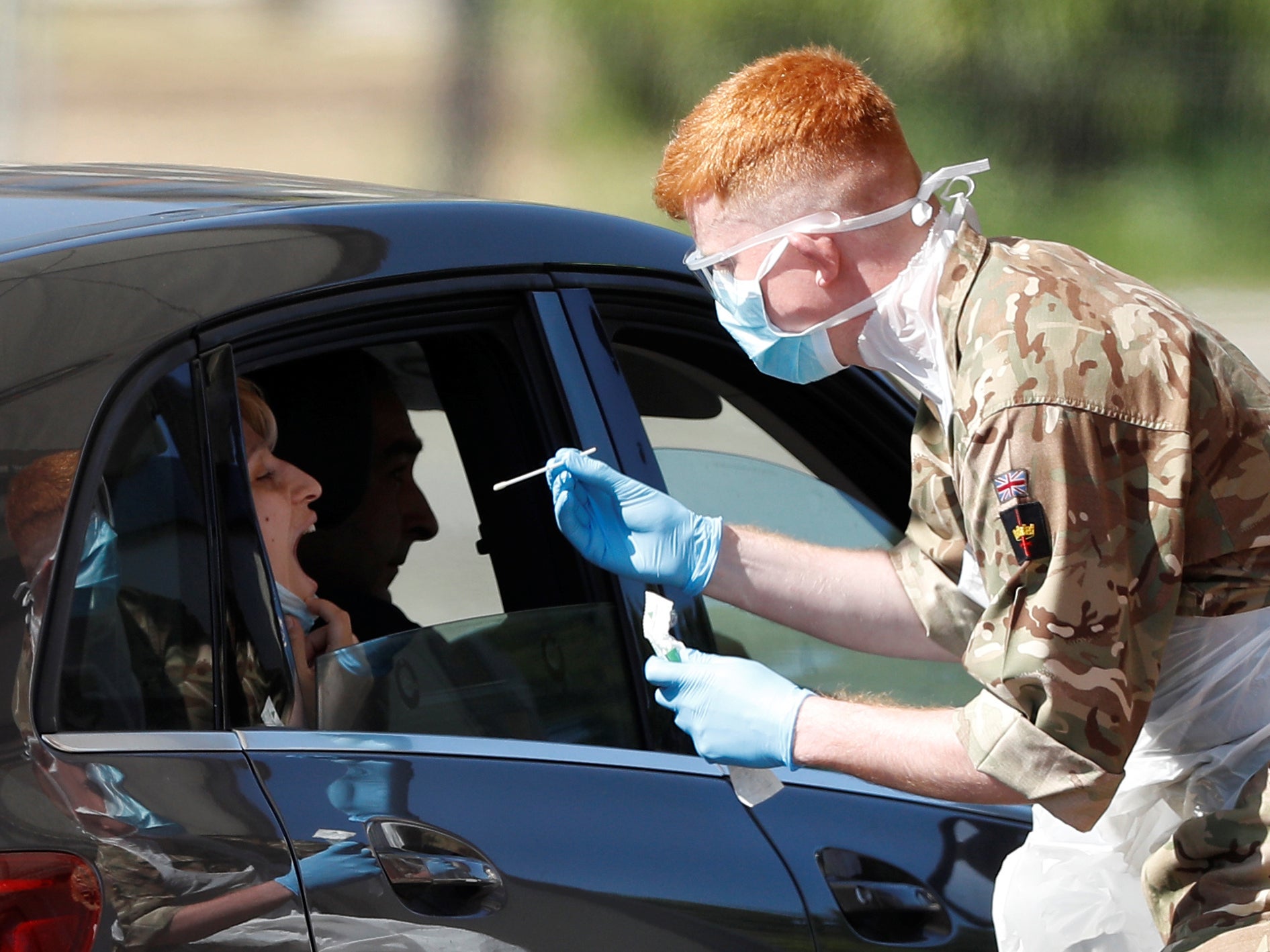
Downing Street has said the Government remains committed to achieving the target of 100,000 coronavirus tests a day by the end of April.
The Prime Minister’s official spokesman said: “We are very clear that we want the NHS to be making use of any additional capacity which exists.
“We have more to do in relation to testing. We need to reach 100,000 tests by the end of the month and that is what we are working hard on.
“Testing is going to be hugely important to finding the key to unlocking the way out of this pandemic and we need to keep working hard at it.”
Ministers hope that the establishment of new testing centres in Milton Keynes, Manchester and Glasgow will enable figures to be ramped up rapidly in the coming weeks.
But Mr Wilson warned the new mass testing centres, which are intended to deliver three-quarters of the 100,000 daily tests by the end of the month, could simply end up competing with existing NHS labs for chemicals.
“These facilities would be a welcome resource and take pressure off the NHS if the issue around testing was one of capacity,” he said.
“However, we are clear that it is a global supply shortage holding biomedical scientists back, not a lack of capacity.”
Mr Wilson said there was concern that mass testing centres may only serve to increase competition “in a Wild West testing scenario”.
He added: “The UK must avoid this for the sake of patient safety.
“It is clear that two testing streams now exist: one delivered by highly qualified and experienced Health and Care Professions Council (HCPC) registered biomedical scientists working in heavily regulated United Kingdom Accreditation Services (UKAS) accredited laboratories, the other delivered mainly by volunteer unregistered staff in unaccredited laboratories that have been established within a few weeks.”
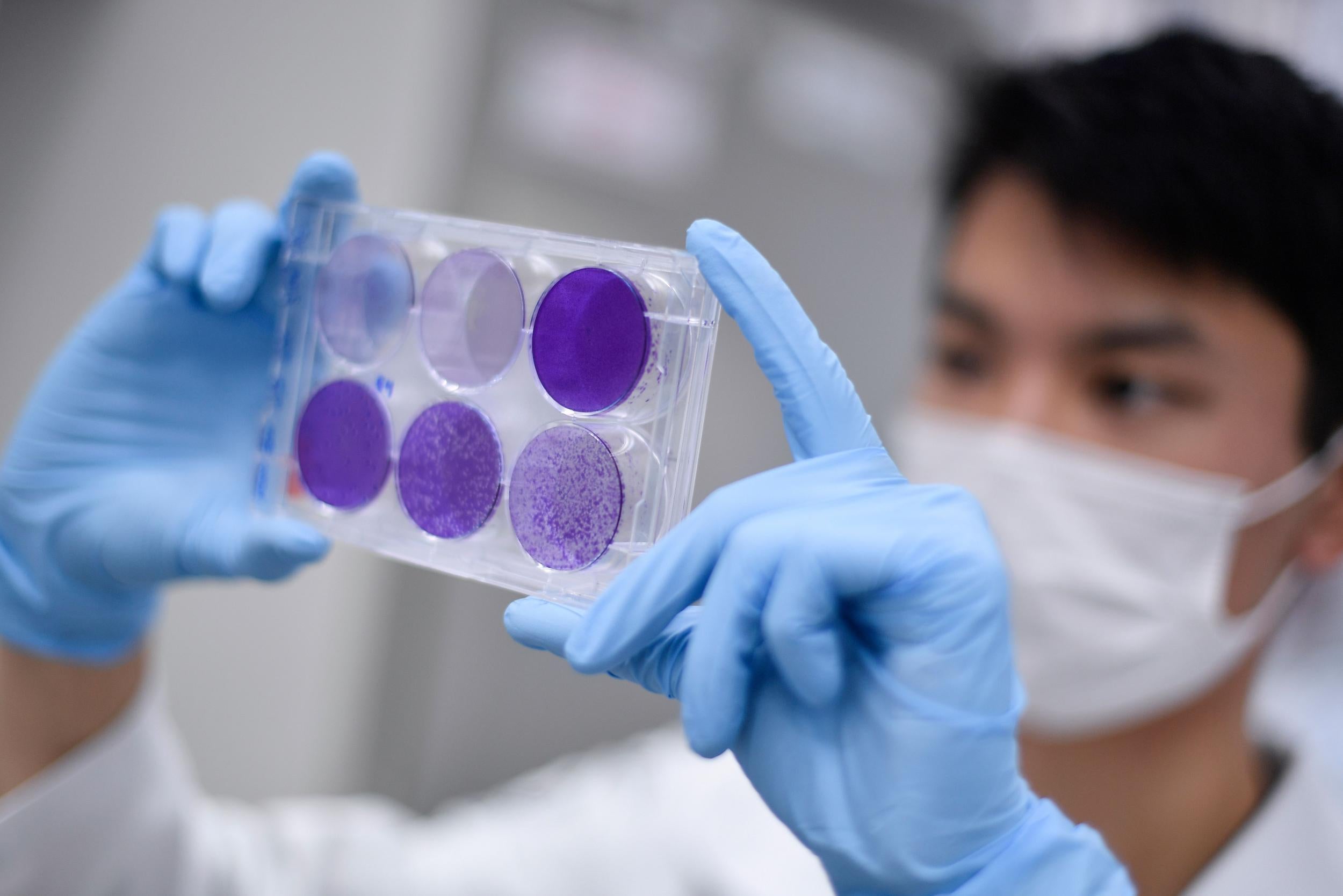
Firefighters could start taking samples for antigen tests under an agreement between unions, employers and fire chiefs.
An update to national agreements will now allow firefighters to drive ambulances to non-emergency outpatient appointments and to transport those in need of urgent care, said the Fire Brigades Union.



